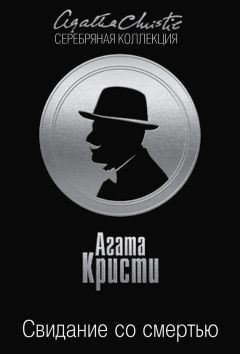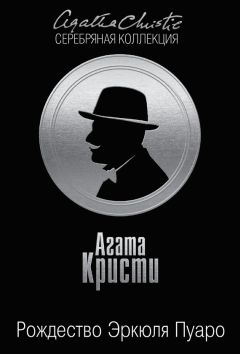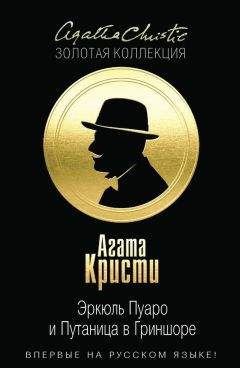Arthur Conan Doyle - Английский язык с Шерлоком Холмсом. Собака Баскервилей
"Of course you know the legend of the fiend dog which haunts the family?"
"I have heard it."
"It is extraordinary how credulous the peasants are about here! Any number of them are ready to swear that they have seen such a creature upon the moor." He spoke with a smile, but I seemed to read in his eyes that he took the matter more seriously. "The story took a great hold upon the imagination of Sir Charles, and I have no doubt that it led to his tragic end."
"But how?"
"His nerves were so worked up that the appearance of any dog might have had a fatal effect upon his diseased heart. I fancy that he really did see something of the kind upon that last night in the Yew Alley. I feared that some disaster might occur, for I was very fond of the old man, and I knew that his heart was weak."
"How did you know that?"
"My friend Mortimer told me."
"You think, then, that some dog pursued Sir Charles (значит, вы полагаете, что какая-то собака преследовала сэра Чарльза), and that he died of fright in consequence (и что в результате он умер от испуга)?"
"Have you any better explanation (у вас есть лучшие объяснения)?"
"I have not come to any conclusion (я /еще/ не пришел ни к какому выводу)."
"Has Mr. Sherlock Holmes (а мистер Шерлок Холмс)?"
The words took away my breath for an instant (на мгновение эти слова отняли у меня дыхание = от этих слов мое дыханье замерло), but a glance at the placid face and steadfast eyes of my companion (но /один/ взгляд на спокойное лицо и глаза моего спутника; steadfast — твердый; непреклонный) showed that no surprise was intended (показал, что /он/ не намеревался /меня/ удивить).
"It is useless for us to pretend (нам бесполезно притворяться) that we do not know you, Dr. Watson (будто мы вас не знаем, доктор Ватсон)," said he. "The records of your detective have reached us here (записки о вашем сыщике дошли и к нам сюда; to reach — протягивать /напр., руку/; достигать, доходить), and you could not celebrate him (и вы не могли прославить его) without being known yourself (не став известным сами). When Mortimer told me your name (когда Мортимер сказал мне ваше имя) he could not deny your identity (он не мог отрицать вашу идентичность = что вы — это вы). If you are here, then it follows (раз вы здесь, то из этого следует) that Mr. Sherlock Holmes is interesting himself in the matter (что мистер Шерлок Холмс сам интересуется этим делом), and I am naturally curious to know (и мне, конечно, любопытно) what view he may take (какая может быть его точка зрения)."
"I am afraid that I cannot answer that question (боюсь, я не могу ответить на этот вопрос)."
consequence [ˈkɔnsɪkwǝns], die [daɪ], deny [dɪˈnaɪ]
"You think, then, that some dog pursued Sir Charles, and that he died of fright in consequence?"
"Have you any better explanation?"
"I have not come to any conclusion."
"Has Mr. Sherlock Holmes?"
The words took away my breath for an instant, but a glance at the placid face and steadfast eyes of my companion showed that no surprise was intended.
"It is useless for us to pretend that we do not know you, Dr. Watson," said he. "The records of your detective have reached us here, and you could not celebrate him without being known yourself. When Mortimer told me your name he could not deny your identity. If you are here, then it follows that Mr. Sherlock Holmes is interesting himself in the matter, and I am naturally curious to know what view he may take."
"I am afraid that I cannot answer that question."
"May I ask (могу я спросить) if he is going to honour us with a visit himself (не собирается ли он оказать нам честь своим приездом)?"
"He cannot leave town at present (в данный момент он не может уехать из города). He has other cases which engage his attention (у него есть другие дела, которые занимают его внимание)."
"What a pity (как жаль; pity — жалость)! He might throw some light on that (он мог бы пролить свет на то) which is so dark to us (что столь неясно для нас; to throw — бросать). But as to your own researches (но что до вашего собственного расследования) if there is any possible way in which I can be of service to you (то, если в каком-либо отношении я могу быть вам полезен; possible — возможный; way — путь; отношение, аспект) I trust that you will command me (уверяю вас, что я /полностью/ в вашем распоряжении). If I had any indication of the nature of your suspicions (если б вы хоть намекнули, какого рода ваши подозрения = кого вы подозреваете; indication — указание; намек; nature — природа; род, сорт), or how you propose to investigate the case (или как вы намерены расследовать это дело; to propose — предлагать; намереваться), I might perhaps even now give you some aid or advice (я мог бы, возможно, даже сейчас /чем-то/ помочь или дать совет)."
"I assure you that I am simply here upon a visit to my friend Sir Henry (уверяю вас, что я здесь /в гостях/ у моего друга, сэра Генри), and that I need no help of any kind (и мне не нужна помощь никакого рода)."
honour [ˈɔnǝ], research [rɪˈsǝ:tʃ], perhaps [pǝˈhæps, præps]
"May I ask if he is going to honour us with a visit himself?"
"He cannot leave town at present. He has other cases which engage his attention."
"What a pity! He might throw some light on that which is so dark to us. But as to your own researches if there is any possible way in which I can be of service to you I trust that you will command me. If I had any indication of the nature of your suspicions, or how you propose to investigate the case, I might perhaps even now give you some aid or advice."
"I assure you that I am simply here upon a visit to my friend Sir Henry, and that I need no help of any kind."
"Excellent!" said Stapleton (превосходно, — сказал Стэплтон). "You are perfectly right to be wary and discreet (вы совершенно правы, /что ведете себя/ настороженно и сдержанно). I am justly reproved for what I feel was an unjustifiable intrusion (я заслуженно наказан за то, что, /как/ я понимаю, был неоправданно навязчив; to reprove — упрекать; делать выговор; intrusion — вторжение; навязчивость), and I promise you that I will not mention the matter again (и обещаю вам, что не буду упоминать об этом деле снова)."
We had come to a point (мы дошли до места) where a narrow grassy path struck off from the road (где узкая, /поросшая/ травой тропинка вела в сторону от дороги; to strike — ударять; сворачивать) and wound away across the moor (и извивалась среди болот; to wind). A steep, boulder-sprinkled hill lay upon the right (справа стоял: «лежал» крутой, уставленный валунами холм; to sprinkle — брызгать; усеивать) which had in bygone days been cut into a granite quarry (из которого в былые времена добывали гранит; to cut — резать; вырубать; quarry — каменоломня, открытая разработка). The face which was turned towards us formed a dark cliff (сторона, обращенная к нам, представляла собой: «образовывала» мрачный утес; face — лицо; лицевая сторона), with ferns and brambles growing in its niches (с растущими в его впадинах папоротником и ежевикой; niche — ниша; углубление). From over a distant rise there floated a grey plume of smoke (с дальнего холма тянулась: «плыла» серая струйка дыма; plume — перо; струйка, столбик /дыма/; to float — держаться/перемещаться на поверхности воды, плыть).
"A moderate walk along this moor-path brings us to Merripit House (недолгая прогулка по этой тропинке приведет нас в Меррипит-хаус; moderate — умеренный; to bring — приносить; приводить)," said he. "Perhaps you will spare an hour (может быть, потратите часок; to spare — беречь; уделять /кому-либо что-либо/) that I may have the pleasure of introducing you to my sister (чтобы я имел удовольствие представить вас своей сестре)."
engage [ɪnˈɡeɪdʒ], unjustifiable [ʌnˌʤʌstɪfaɪǝbl], intrusion [ɪnˈtru:ʒ(ǝ)n]
"Excellent!" said Stapleton. "You are perfectly right to be wary and discreet. I am justly reproved for what I feel was an unjustifiable intrusion, and I promise you that I will not mention the matter again."
We had come to a point where a narrow grassy path struck off from the road and wound away across the moor. A steep, boulder-sprinkled hill lay upon the right which had in bygone days been cut into a granite quarry. The face which was turned towards us formed a dark cliff, with ferns and brambles growing in its niches. From over a distant rise there floated a grey plume of smoke.
"A moderate walk along this moor-path brings us to Merripit House," said he. "Perhaps you will spare an hour that I may have the pleasure of introducing you to my sister."
My first thought was (моей первой мыслью было) that I should be by Sir Henry's side (что я должен быть возле сэра Генри; by one’s side — рядом с кем-либо). But then I remembered the pile of papers and bills (но потом я вспомнил кучу бумаг и счетов) with which his study table was littered (которыми был завален его стол в кабинете; study — изучение; рабочий кабинет; to litter — подстилать/набрасывать солому; разбрасывать в беспорядке /вещи и т. п./). It was certain that I could not help him with those (определенно, с ними я ему помочь не мог). And Holmes had expressly said (и Холмс четко сказал) that I should study the neighbours upon the moor (что мне нужно изучить соседей, /живущих/ на болотах). I accepted Stapleton's invitation (я принял предложение Стэплтона), and we turned together down the path (и мы вместе свернули на тропинку).
"It is a wonderful place, the moor (прекрасное место, эти торфяные болота)," said he, looking round over the undulating downs (сказал он оглядывая /эту/ холмистую местность; to undulate — быть волнистым; двигаться, колебаться волнообразно; downs = downland — холмистые безлесные возвышенности), long green rollers, with crests of jagged granite (/где/ длинные зеленые валы с гребешками из острых выступов гранита) foaming up into fantastic surges (поднимались: «вспенивались» волшебными волнами). "You never tire of the moor (к этим болотам никогда не пропадает интерес; to tire of smth. — терять интерес к чему-либо; to tire — уставать). You cannot think the wonderful secrets which it contains (вы /даже/ не можете представить, какие тайны они таят в себе; to contain — содержать в себе). It is so vast, and so barren, and so mysterious (/болота/ так громадны, пустынны, таинственны)."
litter [ˈlɪtǝ], undulate [ˈʌndjǝleɪt], secret [ˈsi:krɪt]
My first thought was that I should be by Sir Henry's side. But then I remembered the pile of papers and bills with which his study table was littered. It was certain that I could not help him with those. And Holmes had expressly said that I should study the neighbours upon the moor. I accepted Stapleton's invitation, and we turned together down the path.
"It is a wonderful place, the moor," said he, looking round over the undulating downs, long green rollers, with crests of jagged granite foaming up into fantastic surges. "You never tire of the moor. You cannot think the wonderful secrets which it contains. It is so vast, and so barren, and so mysterious."




